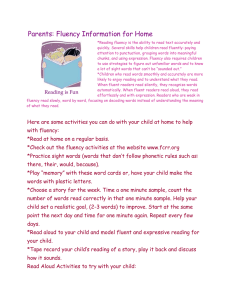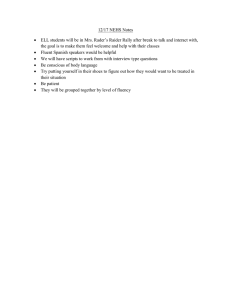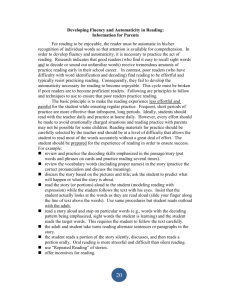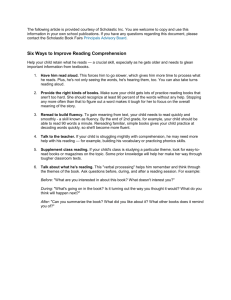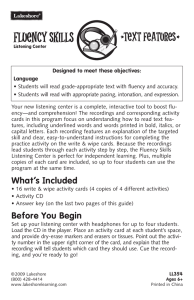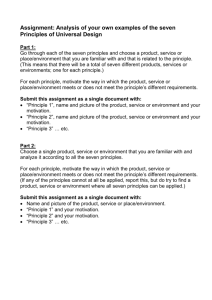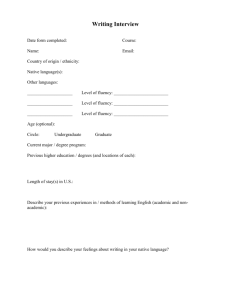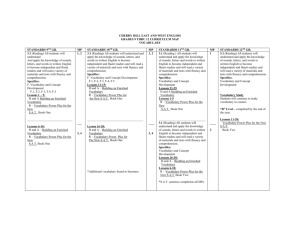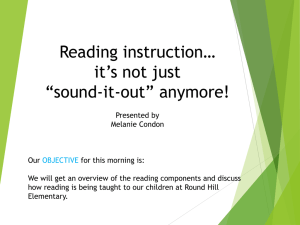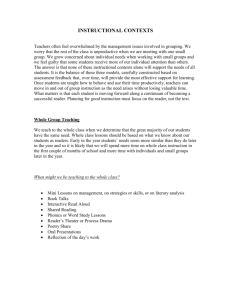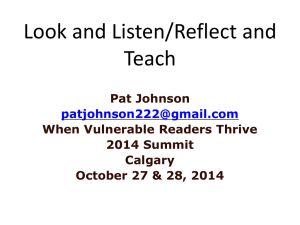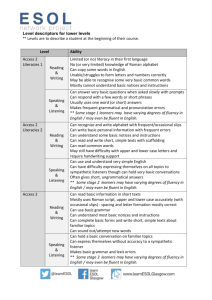Motivate Your Child To Read article
advertisement
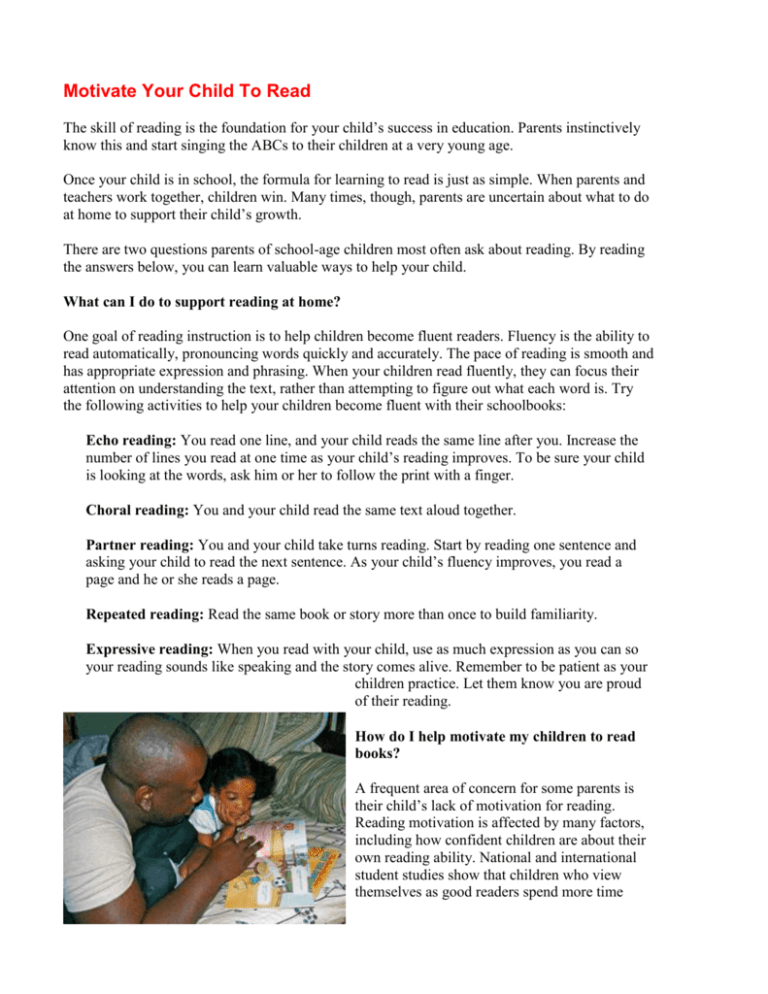
Motivate Your Child To Read The skill of reading is the foundation for your child’s success in education. Parents instinctively know this and start singing the ABCs to their children at a very young age. Once your child is in school, the formula for learning to read is just as simple. When parents and teachers work together, children win. Many times, though, parents are uncertain about what to do at home to support their child’s growth. There are two questions parents of school-age children most often ask about reading. By reading the answers below, you can learn valuable ways to help your child. What can I do to support reading at home? One goal of reading instruction is to help children become fluent readers. Fluency is the ability to read automatically, pronouncing words quickly and accurately. The pace of reading is smooth and has appropriate expression and phrasing. When your children read fluently, they can focus their attention on understanding the text, rather than attempting to figure out what each word is. Try the following activities to help your children become fluent with their schoolbooks: Echo reading: You read one line, and your child reads the same line after you. Increase the number of lines you read at one time as your child’s reading improves. To be sure your child is looking at the words, ask him or her to follow the print with a finger. Choral reading: You and your child read the same text aloud together. Partner reading: You and your child take turns reading. Start by reading one sentence and asking your child to read the next sentence. As your child’s fluency improves, you read a page and he or she reads a page. Repeated reading: Read the same book or story more than once to build familiarity. Expressive reading: When you read with your child, use as much expression as you can so your reading sounds like speaking and the story comes alive. Remember to be patient as your children practice. Let them know you are proud of their reading. How do I help motivate my children to read books? A frequent area of concern for some parents is their child’s lack of motivation for reading. Reading motivation is affected by many factors, including how confident children are about their own reading ability. National and international student studies show that children who view themselves as good readers spend more time reading outside of school. Parents can learn how to best support their child’s learning by understanding reading instruction in the classroom. Unfortunately, there is no single method of teaching that will guarantee all children will succeed, but well-prepared teachers can identify proven approaches to match the strategies to best fit your child’s needs. Informed parents can learn about their child’s reading development by attending a school’s open house or during a parent-teacher conference. Parents should ask about the materials and strategies that are used for reading and how to reinforce those strategies at home. In addition, parents can create a fun, spirited and loving relationship – both with your child and with the act of reading. This shared time and strengthened relationship instill an enjoyment of reading that translates into increased motivation and stronger reading abilities. Several key activities include: Setting aside time each day for reading. Visiting the local library or bookstore so your child can browse the children’s section and choose different types of books such as picture books, chapter books, poetry, fiction, informational books and books on tape. Exploring literacy games on the Internet. If you have access to a computer, you can see videos demonstrating seven literacy-focused games that can fit into the busy schedules of today’s parents and guardians. The games are free and available at readingfirstohio.org. Click on the “Families” link in the navigation bar. In the “Games Parents Play” section, try several reading games that you can use every day with your children. In “A Look in the Classroom,” you can visit classrooms and see what teachers are doing that supports and extends what you do at home. You also can listen to an expert explain how teachers and parents actually use the same strategies to develop literacy. If you have more questions or wish to know more about your child’s reading skills, contact your child’s teacher and school. They would love to hear from you. First published in Columbus Parent Magazine in 2007
